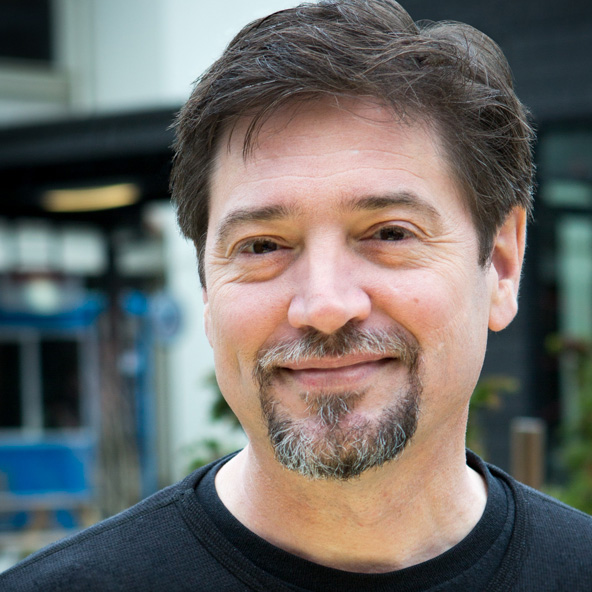The ELISA Ambassador Program is created to bring together a group of technical leaders to collectively
- Educate others on the mission and goals of the ELISA Project
- Raise awareness, visibility, and impact of the ELISA community work
- Promote the results of use case analysis by ELISA Working Groups
- Engage with the safety and Linux kernel community
- Bring in and onboard new contributors to the ELISA community
ELISA Ambassadors are qualified to speak on behalf of the ELISA Project at conferences and local events and meetups. They’re available to contribute tutorials, articles, and blogs. And they’re willing to share their knowledge and help mentor and onboard new contributors into the community.
ELISA Ambassadors have been positioned as thought leaders through the various ELISA Project and The Linux Foundation channels. It’s a great way for the Ambassadors to build professional profile and to raise visibility not only for the ELISA Project but also for the Ambassadors themselves in the open source community.
Ambassadors
Jeffrey Osier-Mixon
Principal Community Architect, Red Hat
Kate Stewart
Medical Devices WG Chair
VP, Dependable Embedded Systems,The Linux Foundation
Kate Stewart is the VP, Dependable Embedded Systems at The Linux Foundation.
She is responsible for the Open Source Compliance and Safety Certification related programs. She is acting representative from the medical devices working group to the TSC. Since joining The Linux Foundation, she has launched Real-Time Linux, Zephyr Project, CHAOSS, ELISA and ACT programs.
With almost 30 years of experience in the software industry, she has held a variety of roles and worked as a developer in Canada, Australia, and the US and for the last 20 years has managed software development teams in the US, Canada, UK, India, and China. She received her Master’s in computer science from University of Waterloo and Bachelor’s of computer science (co-op program) from the University of Manitoba.
Lukas Bulwahn
Community Member
Lukas Bulwahn received a diploma in computer science and a PhD in formal methods from Technische Universität München. From 2012 to 2021, he worked at BMW on research and development of an open-source software platform for autonomous driving systems.
One part of this research has been the development of Adaptive AUTOSAR, a standard to develop future software in C++ on top of POSIX operating systems. As another part of this research, he considers if Linux is sufficient for use as operating system for autonomous driving, which ultimately led to his participation in the OSADL SIL2LinuxMP project and Linux Foundation ELISA project, where this question is answered in an industrial collaboration.
He has presented his work at various industrial and open-source conferences, including FOSDEM, ELCE ‘17 & ‘18, Open-Source Summit Japan 2017, safe.tech 2018, Verification Futures 2018, Functional Safety 2019 and many more. He is active in collaboration with academia, in the program committee of Formal Verification of Autonomous Vehicles Workshop, Empirical Formal Methods Workshop and Industry Program Committee International Symposium on Software Reliability Engineering 2019, and on the scientific board of Operational Safe Systems 2019.
Olivier Charrier
Principal Functional Safety Specialist - Solutions Engineering Team, Wind River
Olivier Charrier obtained a Master’s degree in Software Engineering (DESS) from Bordeaux University in 1989. Prior to joining Wind River, Olivier worked for Alsys/Aonix developing and integrating Ada development environment for embedded systems.
After an almost 4 years in the Ada95 engineering center of Aonix located in San Diego, California, Olivier moved back to a South European role, providing consulting on integrating Ada COTS development environment for Mission Critical Space programs.
Olivier Joined Wind River in June 2001 as Senior Field Application Engineer for the South- western region of Europe dedicated to the Aerospace & Defence Market, supporting Thales, Airbus and Safran groups as well as their subcontractors.
In 2007 he became EMEA Aerospace & Defence Principal Engineer to support and coordinate EMEA wide A&D programs, provide consulting on Integrated Modular Avionics and the use of COTS Software Development environment and Operating Systems for Safety Critical systems, also participating in the definition of Wind River corresponding solutions in particular for Safety Certification using Multi-Core systems. In the same timeframe he joined the SAE/ARINC APEX Software Subcommittee to participate in the elaboration of the ARINC 653 standard.
Since January 2017 Olivier has been extending his scope to contribute to other markets, like Railway, Nuclear, Medical and Automotive, also adding new geo like APAC.
Pete Brink
Principal Consultant, UL Solutions
Pete Brink is a Principal Consultant at UL Solutions.
Pete started his career in 1987 working on Jet Engine control systems and then did embedded systems development for the next 8 years working on print servers, cable scanners, in-circuit emulators, and satellite modems. Pete did a long stint at Intel where he worked on a variety of different PC-based technologies (multimedia, storage, USB) and culminated his Intel career by leading Intel’s ADAS demo at the 2015 CES. Pete then moved to PolySync where he was a Principal Engineer/Director of Engineering focused on creating a software infrastructure to enable autonomous driving and then worked on industrial lasers at nLIGHT where he was a Senior Software Engineering Manager.
In addition to his engineering experience, Pete led an all-volunteer effort to establish a software engineering curriculum at Intel and then became active in the IEEE-Computer Society’s Software Engineering Body of Knowledge (SWEBOK) and Software Engineering Competency Model (SWECOM.) Because of his activities with the IEEE, Pete became a Program Evaluator (PEV) in Software Engineering (BSSE) for the Accreditation Board for Engineering and Technology (ABET.) Pete has now visited four universities and evaluated their software engineering programs for accreditation.
Philipp Ahmann
TSC Chair and Systems and Automotive WG Chair
Technical Business Development Manager, Robert Bosch GmbH
Philipp Ahmann is a technical business development manager at Robert Bosch GmbH with focus on Open Source activities. He represents the ELISA project of the Linux Foundation as an ambassador and TSC member.
He has more than 10 years of experience in the field of Linux automotive SW base platforms working as engineer, team leader for all test activities and as project manager. All of these projects utilized complex multi-core chipsets.
In his current position he contributes to a project focusing on embedded Linux in industrial applications and wider IoT scope beyond pure Automotive use cases.
Shuah Khan
Kernel Maintainer & Linux Fellow, The Linux Foundation
Shuah Khan is a Kernel Maintainer & Linux Fellow at The Linux
Foundation.
Shuah is an experienced Linux Kernel developer, maintainer,
and contributor. She leads the Linux Foundation Mentorship program
<https://linuxfoundation.org/a
aimed at increasing diversity in open source projects at the Linux
Foundation. She serves on the Linux kernel Code of Conduct committee
<https://www.kernel.org/code-o
In addition, she serves as the ELISA <https://elisa.tech/> TSC Chair
focusing on connecting ELISA Safety community with the Linux kernel
community and overseeing ELISA technical direction. She authored A
Beginner’s Guide to Linux Kernel Development
<https://training.linuxfoundat
Sudip Mukherjee
Kernel Engineer, Codethink
Sudip is a Kernel Engineer at Codethink.
Sudip has a B.Sc degree and also hold a Diploma in Electronics Engineering. He has been a mainline kernel contributor since 2014. Sudip is also a Debian Developer and has worked in multiple automotive projects for Codethink’s clients.
Are you interested in becoming an official ELISA Ambassador?
Requirements for becoming an official ELISA Ambassador are:
- Affiliated with an ELISA Member organization or an active contributor to the community.
- Good understanding of safety in general and the basics of the Linux kernel and able to answer FAQs around ELISA, Linux, and Safety
- Available to speak on behalf of ELISA at conferences and events or contribute to blogging or documentation
- Actively engaged with the community in some significant way, whether that’s in a role as a technologist, a contributor, a speaker, or an influencer.








